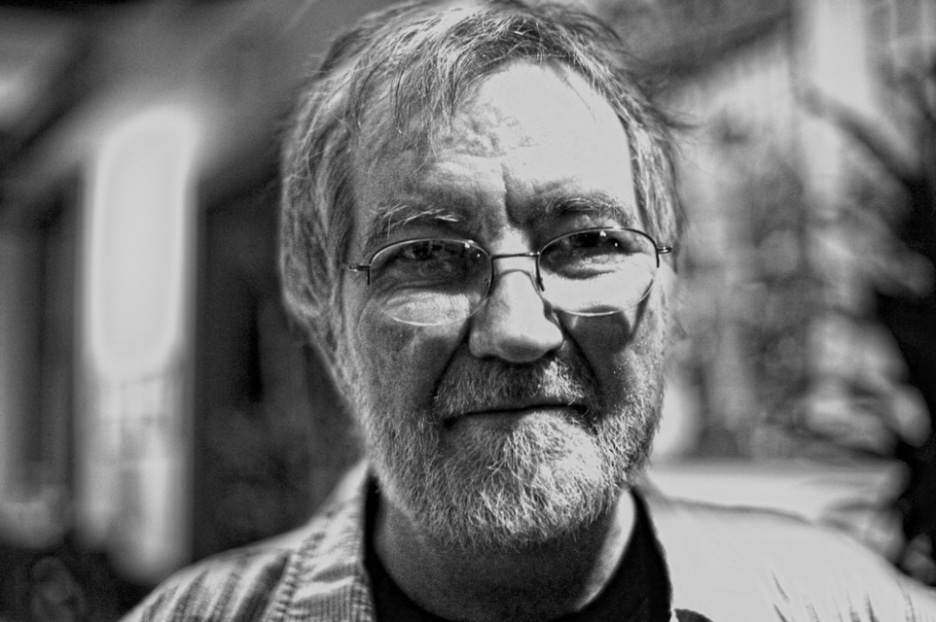Not entirely unlike finding yourself bound and gagged at the head of a dinner table with a family of psychopaths leering at you, the news of Tobe Hooper’s death was the last thing any of us wanted to wake up to on this late August Sunday morning.
Born in Austin, Texas on 25th January 1943, the renowned filmmaker reportedly passed away on 26th August 2017 in Sherman Oaks, California at the age of 74, from causes as yet unrevealed. He leaves behind more than 30 films, but his name has always been and will always be synonymous with his second feature, one of those rare films which can truly be said to have changed the course of cinema history: 1974’s The Texas Chain Saw Massacre.
I don’t wish to rehash any of the innumerable treatises that have been penned on the subject, nor am I generally too keen on making sweeping authoritative statements when it comes to the clearly subjective arena of film – and yet, I am happy to say, without hesitation, that I consider The Texas Chain Saw Massacre to be the single greatest horror movie ever made. From beginning to end, its visceral energy and haunting imagery jab the subconscious, churn the stomach, sear themselves into the viewer’s memory in a manner that, for a great many of us, leaves us permanently changed. And I say this as someone who didn’t get to see it until comparatively late in my horror education (age 20, if I remember correctly), as in my home of the United Kingdom, the film was banned by the British Board of Film Classification until the resignation of their notoriously controlling leader James Ferman in 1999. While at the time the BBFC were infamously scissor-happy, cutting out offending content left and right with little concern for the filmmaker’s vision, the story goes that with Chain Saw they realised there was no amount of editing they could do that would lessen the film’s impact. All this despite the fact that the film contains no graphic bloodshed. Put simply, it was banned because it was good filmmaking, and one need only cast a cursory eye over the face of horror in the 43 years since to see how influential it remains.
The remainder of Hooper’s career, alas, was never so great a story. While many of us have a soft spot for his TV movie adaptation of Stephen King’s Salem’s Lot, sideshow slasher The Funhouse, camp classic Lifeforce and the blackly comedic The Texas Chainsaw Massacre 2, there’s really no denying that his overall body of work never lived up to his beginnings. It didn’t help that his biggest box office hit Poltergeist has always been plagued with controversy over whether or not it was Hooper or writer-producer Steven Spielberg who really directed it. Either way, looking at his later work from the 90s and 2000s, it’s hard not to feel he was simply going through the motions.
For myself and doubtless many others here in the UK, there’s a particular poignancy to the fact that Hooper’s death coincides with FrightFest 2017, exactly seven years after he was guest of honour at the London horror film festival. I was there that year (indeed, Hooper’s presence, plus screenings of TCM and his rarely-seen debut Eggshells, was one of the main things that sold me on the event), and I must admit finding it rather sad seeing Hooper sitting on the stage, not seeming to enjoy the spotlight, frequently struggling to find much to say about his life’s work. It all seemed to underline that, while the director had given us some great work, his overall filmography was not all it could have been.
With Hooper’s passing coming so soon after that of George Romero, another game-changing legend who didn’t necessarily get all he deserved in his career, and almost precisely two years after the death of Wes Craven (who passed away 30th August 2015), there’s no avoiding a sense that a curtain is being drawn over a great era of horror cinema. The filmmakers who gave us Night of the Living Dead, The Last House on the Left and The Texas Chain Saw Massacre – three films which changed the horror genre forever – are now gone. But of course, that’s the wonder of film: those heartfelt, nightmarish visions they left behind will truly never leave us.
